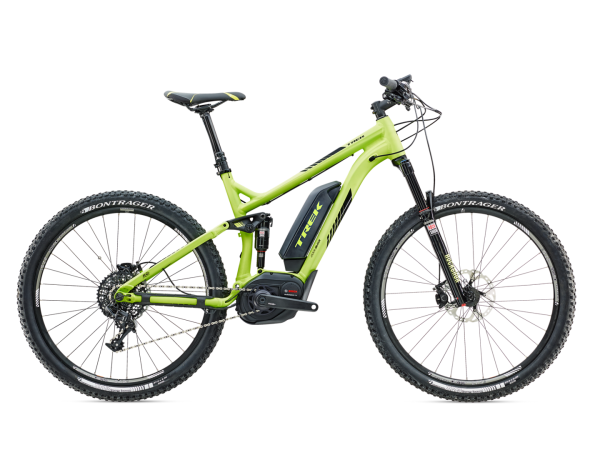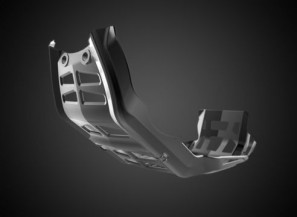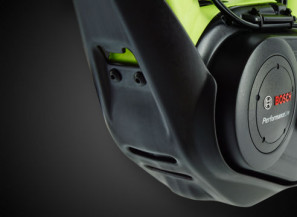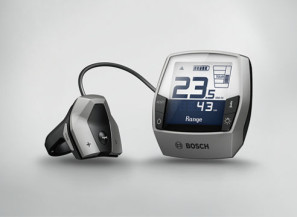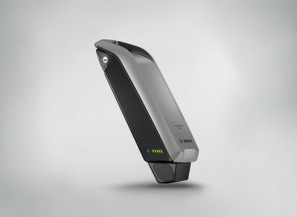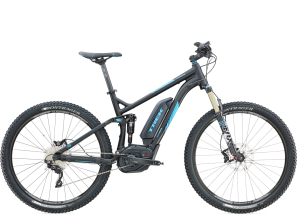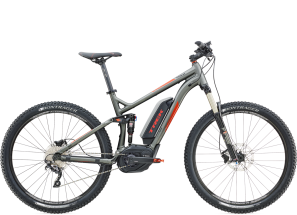The landscape of e-bikes is quickly changing – faster than the opinions of the motorized bicycles. The idea of electric mountain bikes is especially controversial at least here in the U.S. which is probably why Trek’s new Powerfly FS + won’t be making it here any time soon. Trek is calling the Powerfly FS + a “Europe only” model which is why you won’t be finding it on the Trek U.S. website. But if you happen to be one of our international readers or just want to see what Trek and Bosch have been up to, read on…
Built loosely around the Fuel EX 27.5″ full suspension frame, the Powerfly + FS has a few geometry tweaks like longer chainstays, and more trail at the fork which are likely made to adapt to the added heft and power of the electronic motor. The 120mm travel frame also does away with the Full Floater suspension linkage, though the ABP convert (Active Braking Pivot) is still in place. An E2 tapered steer, 142×12 rear dropout, and internal cable routing (including the ability to integrate lights into the frame) are also employed.
Hinting toward the Powerfly’s use as an actual mountain bike, the Bosch motor is housed in an exclusive MotorArmor cover that should act a bit like a skid plate during impacts to the bottom bracket area. Realistically, the aluminum cover is mainly to prevent rocks thrown up from the front wheel from damaging the motor but it also serves as protection for derailleur cables and other frame elements. Capable of speeds up to 25 km/h, the motor is powered by a 400 watt lithium ion battery that should charge in roughly 3.5 hours. Trek’s Ride+ power system is controlled through a fairly standard Bosch control unit at the handle bar which allows riders to change the level of power assist from nothing to full power – but you always have to pedal for the bike to move. If overall battery life on your ride isn’t a concern, there is even a USB port on the screen which allows you to charge other devices while riding.
Trek will be selling the Powerfly + FS in Europe with three different build levels, the top end 9, followed by the 7, and 5. All three bikes have the same electronic hardware but drop the pricing through the use of lower priced componentry on the rest of the bike. Powerfly + FS pricing starts out with the 3,599€ 5, then jumps to 4,199€ for the 7, and 4,699€ at the top.
